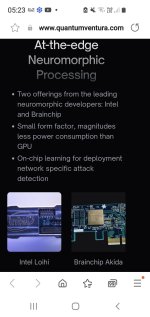rgupta
Regular
I was just analysing the situation and a recent jump and wants to consider the following
1. It is almost after a year that we have very little pressure on sp. The finances are in order, asx 300 rebalance is 4 months away. Does look like a share sale by company until next half yearly.
2. An announcement upto next half yearly or a good income in next half yearly will provide us with a support.
3. Edge boxes are out in the market and feedback will be available in next couple of months.
So end of the day it looks like this rally looks real for the time being unless there is some negative news some where.
Hope for the best for all the holders.
Dyor
1. It is almost after a year that we have very little pressure on sp. The finances are in order, asx 300 rebalance is 4 months away. Does look like a share sale by company until next half yearly.
2. An announcement upto next half yearly or a good income in next half yearly will provide us with a support.
3. Edge boxes are out in the market and feedback will be available in next couple of months.
So end of the day it looks like this rally looks real for the time being unless there is some negative news some where.
Hope for the best for all the holders.
Dyor



